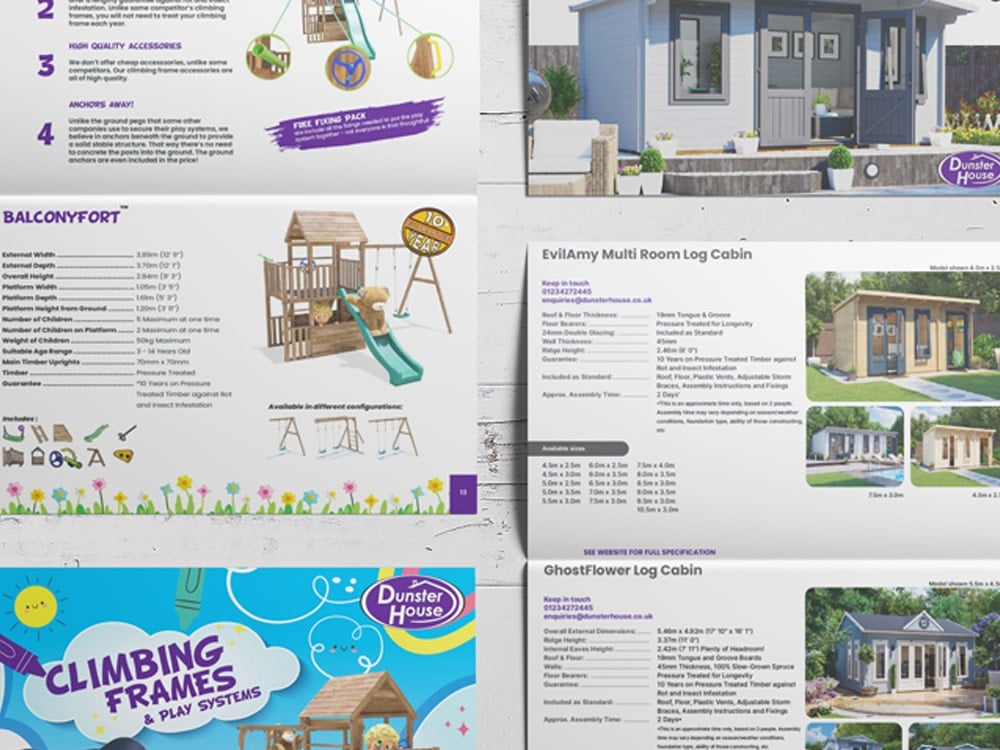A huge number of our log cabins get used as bases for small businesses, or by people who are working from home. Some of them are self-employed freelance workers, and some are working remotely for their employers.
Whichever type of worker you are, there are many benefits of working from home. No traffic stress, controlling your own work hours (though some remote workers may not be able to do this), freedom to attend medical appointments, and using your own familiar chair, desk and possibly even computer.
One of the biggest benefits touted is the amount of money you can save when you work from home! However, most of the guides on this that I could find were in American dollars. I thought I’d kill two birds with one stone by working out for myself what I would save and showing you all how I did it so that you can do it too.
Location note (which is important for judging the figures): I’m based in the South-East of England, but not London.
Working days in a year
First things first, I needed a broad average of how many days I work in a year. Luckily there’s a lot of info out there on this for people who deal with payroll and benefits! They advise using 260 days – which is 365 minus weekends. I’m also taking off the 8 bank holidays and assuming I use my full 20-day holiday allowance. End amount: 232 days
Petrol
I plugged the relevant commute details into two journey pricing sites (journeyprice.co.uk and rac.co.uk), then took the average of their slightly different answers. This gave me a daily petrol spend of £1.98. (For reference, I’ve got a tiny, cheap car with a 1L engine that should run at about 65mpg, and my commute is about a 20 mile round trip.)
(I’m assuming that if you use public transport regularly you’ll have a much better idea of your costs than us drivers, due to buying season tickets or suchlike.)
Total petrol cost per year (232*1.98) = £459.36
Food
Full admission, I’m one of those extremely not sensible people who buy lunch far more often than they don’t. I bought my lunch today! (It was £2.35 plus a £1.50 4-pack of Toffee Crisps …). I’ve averaged my lunch costs out at about £3.50 a day, to take into account the one or two days I might bring something from home. (Maybe!)
Total food cost per year = £812
Work clothes
This can be a bit of a hidden cost. If you have a uniform, this cost might be covered by your company (and are you taking advantage of the tax rebate for cleaning/repairing uniforms?), but a lot of places will provide you with the T-shirt or jacket and expect you to wear smart black trousers, shoes and socks. No-one wears smart, ironed-in creased black trousers socially, right? So you’ve got to pay for them! Places without a uniform vary depending on the strictness of their dress code – if you’re in suits daily which require dry-cleaning, those are definitely costs to bear in mind!
I’m not saying that people who work from home all wear pyjamas! But I am saying that you will probably need to wear smart clothes less often. For example, when you go into the main office, or travel to visit clients, or have a video call. I’ve met home workers who’ve had a frankly genius idea of only wearing smart clothes on the top half when holding video calls …
In the last year I’ve bought a couple of new blouses for work, and three new pairs of shoes. All due to wear and tear from being worn every single day. So personally, for me, it came to roughly:
Total work dress cost: £175 this year
Coffee
Now, I don’t drink coffee but virtually everyone around me does, so I thought it would be a useful cost to include for you all. You’ll know the cost of your preferred order, but I’m going with a Costa Flat White at about £2.40. I’m also assuming that you coffee drinkers will probably manage (at least) two cups a day. Adjust to your levels of addiction.
(2.40*2)* 232
Maximum total coffee cost: £1113.60
I’ve also done a better case scenario – if you can get coffee from the vending machine for 15p, that comes to £69.70 a year, or if you have access to a kettle and like instant coffee, one 200g jar for £2 – 4 (depending on what you buy) should last for at least 100 cups (That’s assuming one teaspoon per cup) which would make it roughly £13.92 a year.
Time you’d gain by working from home
While it isn’t a cost as such, it’s certainly something worth considering: the amount of time that you will gain by losing that awful rush hour commute. And after all they do say “Time is Money”!
My commute is about an hour round trip, so:
Time lost commuting: 232 hours – almost 10 days
Total costs
Working in an office Mon – Fri = £1446.36 + 232 hours spent in a car
So there’s the end result. I was pretty shocked by my food expenditure. I’d love to say I’ll improve that, but well … I’ll try.
I hope this has helped you understand how much you might save if you were working from home. Even if that’s not within your reach right now, it’s always useful to know where we should be improving on saving the pennies. Maybe you’re much better than me on food, but buy coffee from Costa or Starbucks every day. Maybe your petrol costs are so much that you might benefit from taking the bus.
And it’s not just the money you save, there are plenty more benefits to working from home in your own garden office.








